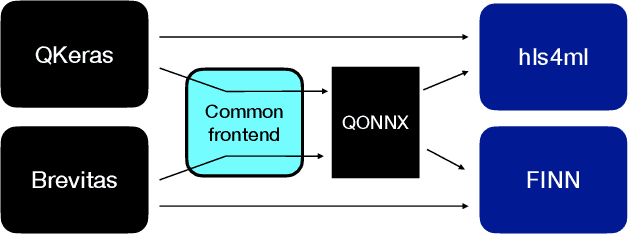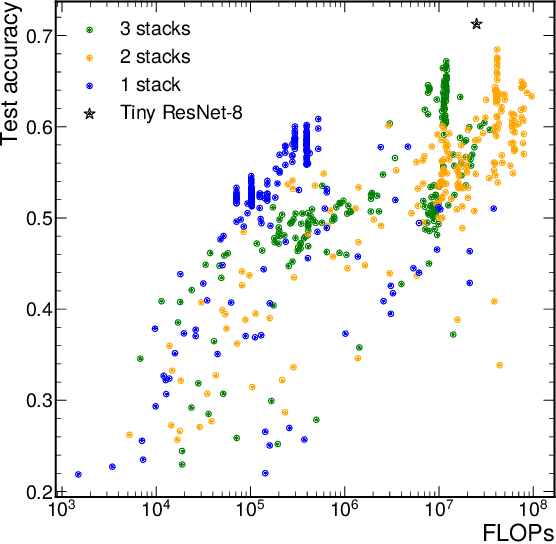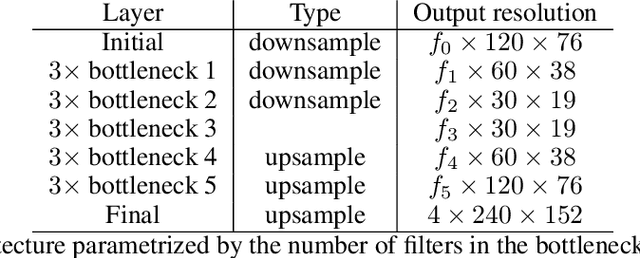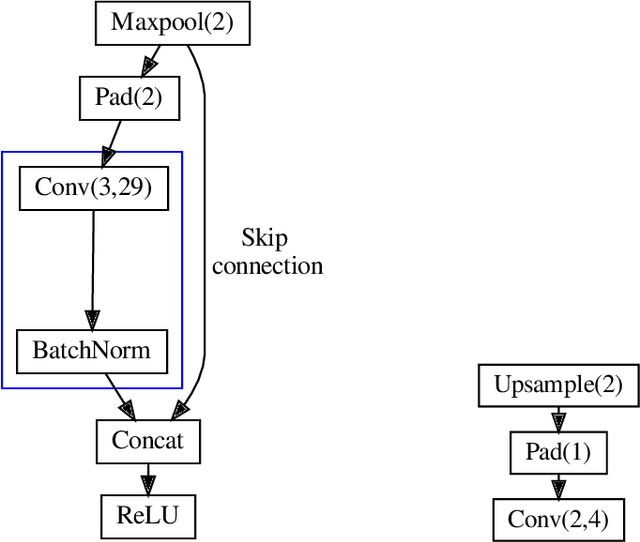Nicolò Ghielmetti
Open-source FPGA-ML codesign for the MLPerf Tiny Benchmark
Jun 23, 2022



Abstract:We present our development experience and recent results for the MLPerf Tiny Inference Benchmark on field-programmable gate array (FPGA) platforms. We use the open-source hls4ml and FINN workflows, which aim to democratize AI-hardware codesign of optimized neural networks on FPGAs. We present the design and implementation process for the keyword spotting, anomaly detection, and image classification benchmark tasks. The resulting hardware implementations are quantized, configurable, spatial dataflow architectures tailored for speed and efficiency and introduce new generic optimizations and common workflows developed as a part of this work. The full workflow is presented from quantization-aware training to FPGA implementation. The solutions are deployed on system-on-chip (Pynq-Z2) and pure FPGA (Arty A7-100T) platforms. The resulting submissions achieve latencies as low as 20 $\mu$s and energy consumption as low as 30 $\mu$J per inference. We demonstrate how emerging ML benchmarks on heterogeneous hardware platforms can catalyze collaboration and the development of new techniques and more accessible tools.
Real-time semantic segmentation on FPGAs for autonomous vehicles with hls4ml
May 16, 2022



Abstract:In this paper, we investigate how field programmable gate arrays can serve as hardware accelerators for real-time semantic segmentation tasks relevant for autonomous driving. Considering compressed versions of the ENet convolutional neural network architecture, we demonstrate a fully-on-chip deployment with a latency of 4.9 ms per image, using less than 30% of the available resources on a Xilinx ZCU102 evaluation board. The latency is reduced to 3 ms per image when increasing the batch size to ten, corresponding to the use case where the autonomous vehicle receives inputs from multiple cameras simultaneously. We show, through aggressive filter reduction and heterogeneous quantization-aware training, and an optimized implementation of convolutional layers, that the power consumption and resource utilization can be significantly reduced while maintaining accuracy on the Cityscapes dataset.
 Add to Chrome
Add to Chrome Add to Firefox
Add to Firefox Add to Edge
Add to Edge